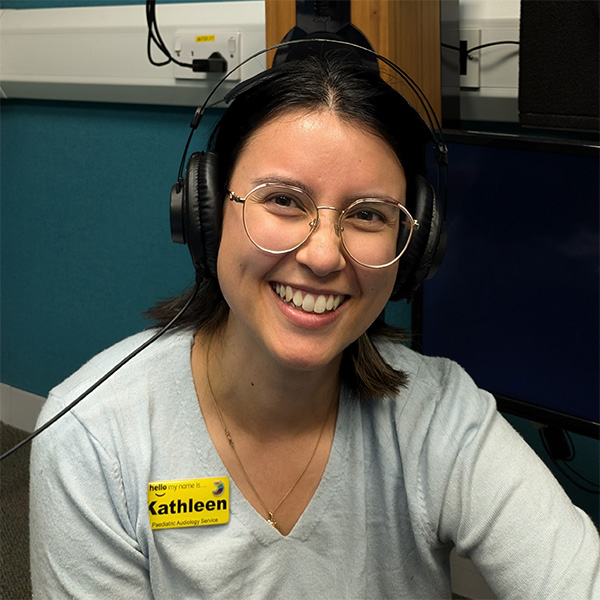
Kathleen, Paediatric Audiologist
- Community Workforce
- Name of service: Children and young people’s audiology centre
- Describe your role in three words: Fun, family and WooWooWoo! (hearing test sound)
What does your day look like from sunrise to sunset?
I catch a train to St Thomas’ Hospital or a satellite site in South East London, join a daily team meeting to discuss the children booked in that day, I then check the equipment. I see children face to face or virtually for appointments, I perform hearing tests and I do some tests checking the health of the child’s ears. I have phone calls with families or professionals. If I’m lucky, I’ll say hello to my favourite people at the shawarma restaurant at lunch and sit in the park to enjoy my food and look out for birds (a hobby of mine).
How does your service support the residents of south east London?
Our service is the largest children’s audiology service in the country providing routine and specialist care, including hearing tests, fitting hearing aids, caring for children with middle-ear disorders like glue-ear, and specialist assessments under general anaesthesia or sedation.
What’s the best way of explaining your role in the team?
Children with delayed speech and language or development may be referred to the audiology service for hearing assessments. My role is to assist them in finding answers through hearing tests, fitting hearing aids, or referring them to other relevant services.
Tell us about a time when you felt you made a difference to someone
Recently a teenager with significant hearing loss in both ears returned to our service, she relies on hearing aids for communication. I’m grateful that our service could offer her smaller, more comfortable hearing aids and empower her to take ownership of her health management.
What do you love about your role?
I feel privileged to work with families who trust me and my team to help their children hear and communicate. I love having the opportunity to help people feel included in their communities. This is a great role for someone who wants to help children gain independence.
What advice would you give to someone starting in this role or keen to work in a similar service?
We are often the first team families meet when they suspect their child is not developing typically, it is important to be able to adapt your approach, and set realistic expectations for the child and their family.
